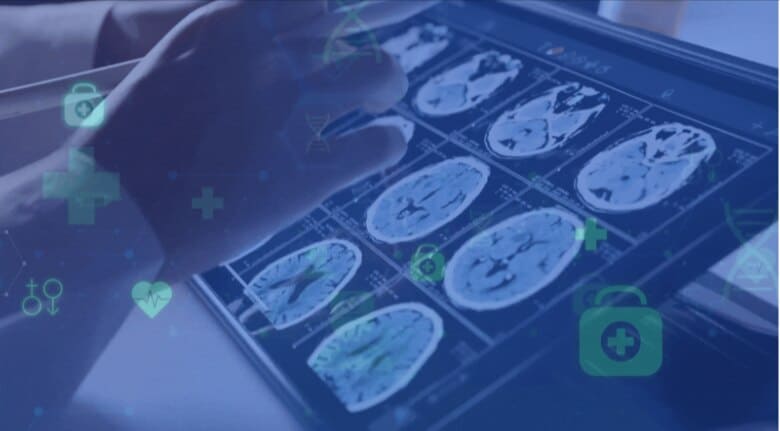As a Digital Transformation Expert, I have had the privilege of being a part of the phenomenal transformation of many sectors, but the metamorphosis of the healthcare industry has left an indelible impression on me. The stage was set, the actors ready, and then, the curtains were drawn to reveal an industry undergoing a profound shift, not unlike a caterpillar transforming into a butterfly.
The Advent of Digitalization in Healthcare
I recall a time when patient records were maintained manually, a period that seems almost archaic now. The introduction of Electronic Health Records (EHRs) was a significant milestone in the healthcare industry, the one that paved the way for a multitude of other advancements. Centralizing patient data, making it easily accessible to healthcare providers, reducing errors, and enabling personalized care – EHRs did it all. The mere thought of this transformation fills me with a sense of awe and admiration for the power of digital technology.
Telemedicine: Bringing Healthcare Home
The advent of telemedicine has been a game changer. Accessing healthcare services from the comfort of home, especially for patients in remote areas or those with mobility issues, was an unimaginable concept not too long ago. But here we are, with shorter wait times and increased patient satisfaction, all thanks to telemedicine.
Patient Portals: Empowering Patients
Patient portals, secure online websites that provide 24-hour access to health information, have transformed the way patients interact with healthcare providers. These portals allow patients to schedule appointments, view medical records, communicate with healthcare providers, and even refill prescriptions. The feeling of empowerment that these portals provide to patients is truly remarkable.
Mobile Health and Predictive Analytics: The Future is Here
Mobile health apps and predictive analytics have taken healthcare to a whole new level. The ability to manage health more effectively, track physical activity and diet, and manage chronic conditions – the possibilities are endless. Furthermore, using advanced analytics and machine learning algorithms to predict patient outcomes, identify high-risk patients, and customize care plans is nothing short of revolutionary. It’s inspiring to think about how these tools are improving patient outcomes and making healthcare more efficient.
Interoperability: A Key to Coordinated Care
Interoperability, the ability of health information systems, devices, and applications to access, exchange, and use data, is crucial for providing coordinated and efficient patient care. It brings a sense of satisfaction to know that interoperability is enhancing care delivery and patient experience by ensuring accurate and up-to-date patient information.
Artificial Intelligence and Machine Learning: Enhancing Healthcare
Artificial Intelligence and Machine Learning are not just buzzwords in the healthcare industry. They’re real, tangible technologies that enhance diagnosis, treatment planning, and patient monitoring. The sense of awe that I feel when I think about how these technologies are providing accurate and timely insights is indescribable.
Personalized Medicine: Tailoring Treatment Plans
Personalized Medicine, leveraging genomic and other forms of personal data to create tailored treatment plans, has greatly improved patient outcomes. The thought of using big data analytics and machine learning to understand the individual characteristics of a patient’s condition fills me with a sense of wonder.
Privacy and Security: Building Trust
The importance of maintaining strong cybersecurity measures to protect patient data and build patient trust cannot be overstated. A breach in data security can severely damage the patient-provider relationship and lead to legal and financial consequences. As a digital transformation consultant, I always emphasize the importance of privacy and security to my clients.
Reflections on the Journey
Overall, the digital transformation journey in healthcare has been nothing short of extraordinary. But it’s not just about implementing technology for technology’s sake; it’s about improving patient care and involving patients and healthcare providers in the digital transformation efforts. This approach ensures that the technologies implemented truly meet their needs and enhance their experiences.
An interesting fact that I’ve come across is how digital transformation in healthcare, while being a computer-based technology, speeds up treatment with easy tests and accurate reports. The impact of digital transformation in healthcare is dramatic and brings numerous benefits to the medical sector. It improves healthcare outcomes, ensures patient safety, guides patients in managing wearable devices, enhances service efficiency, and bolsters communication between clinicians and patients.
However, implementing digital transformation in healthcare isn’t a cakewalk. It’s essential to understand your objectives, avoid reinventing the wheel, generate easy-to-implement solutions, and make things beneficial for stakeholders. A smart approach to digital transformation can reduce expenses while improving the quality of healthcare services.
In Closing
As a seasoned professional in the field of digital transformation, I have witnessed the struggles faced by healthcare workers. These include long hours, high stress levels, and the perpetual pressure to provide top-notch care to patients. Digital transformation has the potential to provide some much-needed relief to these dedicated professionals. It streamlines processes, reduces administrative tasks, and ultimately allows healthcare workers to focus on what they do best – providing care to patients.
The digital industry is indeed a mammoth, and its impact is felt across all sectors, with healthcare being no exception. As we continue to embrace digital transformation in healthcare, we must remember that at the heart of all this technology are the patients and healthcare providers. Their needs, experiences, and outcomes should always be at the forefront of digital transformation efforts.
Embracing digital transformation isn’t just about staying current with the latest technology trends. It’s about enhancing patient care, improving outcomes, and creating a healthcare system that is efficient, effective, and patient-centered. And as a digital transformation consultant, there’s nothing more rewarding than being part of this journey.







